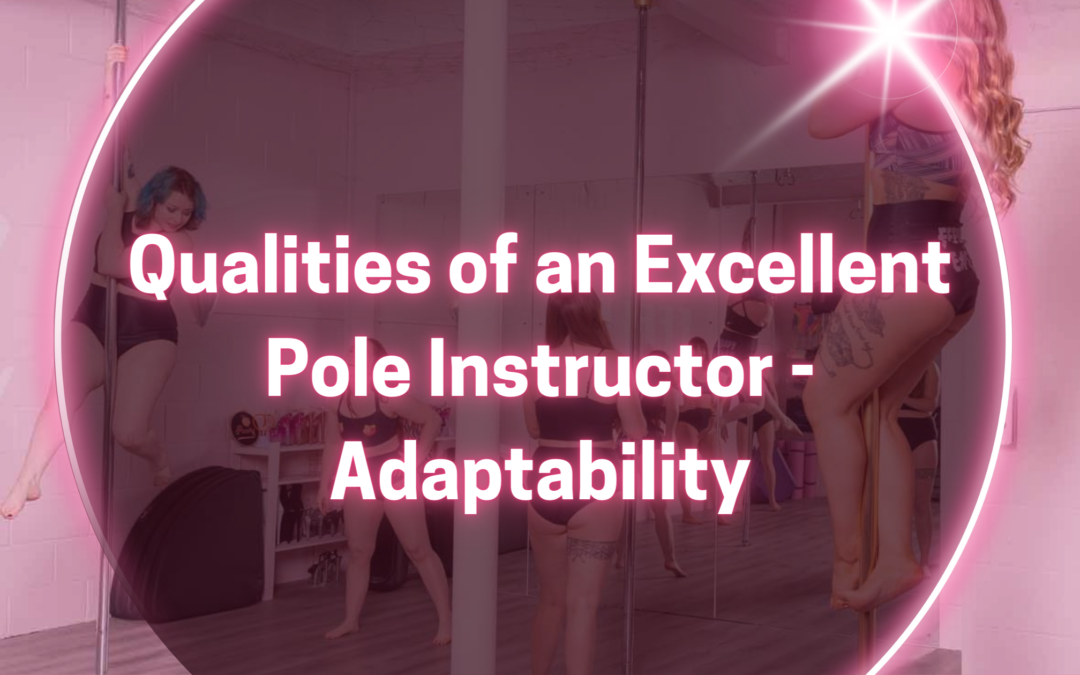Adaptability – able to adjust oneself readily to different conditions.
Why is this important in a pole instructor?
Well, there’s a number of different ways that adaptability impacts your quality of teaching.
- Types of learning styles
Some people learn better visually, some are kinaesthetic and need to ‘map out’ the movement with their bodies, and some require auditory cues in order to process the information. Some people work better through metaphor, and others require straight forward descriptive language.
Being able to consciously and subconsciously recognise and adapt my teaching to different styles of learners will help prevent my students becoming frustrated, which can happen if the instructor just keeps delivering the vital information in one way. After all, is it the definition of madness to keep doing the same thing over and over and expect a different result? The same thing applies when I am teaching, I won’t keep using the same technique over and over if it is clear that it isn’t clicking for you, I will try and adapt. This is why instructors are always learning, because you will always have new students who perhaps process information differently!
- Personal limitations or special requirements
We don’t just take your health information down to take up your time or cover our own butts for insurance :p Having your health information such as previous injuries, any illnesses or medications, and so on, can be hugely helpful in ensuring that we are offering you instruction that is safe, comprehensive and tailored to you.
I recently had a client who struggles with chronic fatigue. I’m in a place where I can really understand because I get B12 deficiency related fatigue myself. So, I know precisely how ‘brain fog’ feels, and the way your brain and body can struggle to process and implement information when you’re in that state. Therefore, it is important to make sure that when you are working on moves whilst feeling fatigued that the instructor doesn’t over exert you, keeps the moves you are practicing as safe, and takes additional care in spotting you through anything that you do. You may take more time to really understand instruction whilst fatigued, and you may need extra time on the explanation aspect in order to really absorb it.
Likewise, I was researching exercise for those who have just undergone chemotherapy as I had some people who were interested in my chair dancing class. Light and regular exercise is recommend to build back the strength of the patient, but it is important to remember that muscle weakness, particularly in the legs, can occur, and to adapt the warm up, any moves or teaching points to this.
Those are just a couple of examples – but you can get a picture of how being transparent in your health issues can really help your instructor to adapt their teaching to you, to make sure that you are both getting the most out of your time together.
***
So, there you have it! Adaptability – an essential traits for any teacher to have. I (Peach) am always working to improve the ways I can adapt my teaching style to each individual, whether it is because of a health issue, conditions such as dyspraxia, dyslexia or ADHD, or just individual learning styles. Every student that walks through the door is unique, so there’s no point in using a one size fits all teaching approach. We look forward to welcoming you and your unique brain into our studio very soon.

